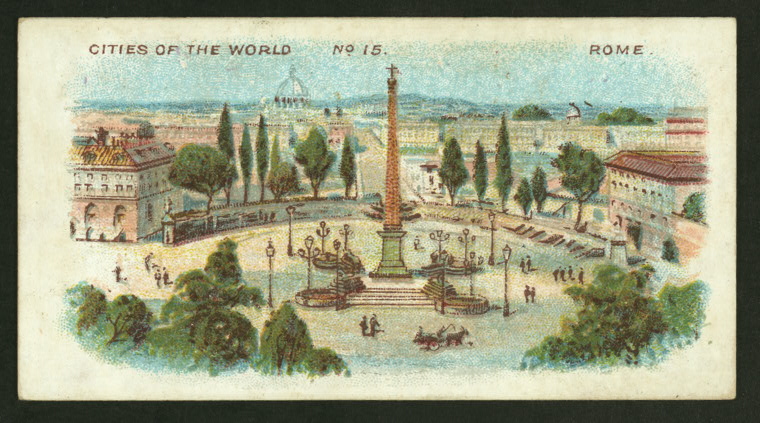Reader’s Den
The Reader's Den: Edith Wharton's "Roman Fever"

Like "The Other Two" and "Autres Temps," Wharton's 1934 story, "Roman Fever" deals with its characters' perceptions of themselves and others, and their attitudes towards the past.
Mrs. Slade and Mrs. Ansley have been friends and rivals for years, living across East 73rd Street from each other. Brought together in Rome with their daughters, and looking out over a view of the Roman Forum, the two widows fall to reminiscing about the time they spent in Rome as young women, shortly before their marriages. Before long, the friendly talk takes a dark turn, and secrets long kept are revealed.
- As their daughters leave them for the afternoon, to rendezvous with the young Italian men they have met, Mrs. Ansley says, "The new system has certainly given us a good deal of time to kill; and sometimes I get tired just looking — even at this." What does she mean by 'the new system,' and why has it left them as bystanders?
- Mrs. Slade envies Mrs. Ansley, but takes a condescending attitude towards her friend, thinking of herself as the social superior, whereas Mrs. Ansley she sees as hopelessly respectable, irreproachable, and a "museum specimen" of old New York. Do you think Mrs. Slade just sees what she wants to see in Mrs. Ansley?
- Mrs. Ansley, on the other hand, feels sorry for Mrs. Slade. Wharton writes that the two view each other, "each through the wrong end of her little telescope." Have their conceptions of each other blinded them to the realities of their personalities?
- Why does Mrs. Slade decide, after all these years, to confess that she wrote the letter that was sent to Mrs. Ansley, supposedly from her then fiancé Delphin Slade, asking Mrs. Ansley to meet him after dark at the Coliseum?
- Why hadn't Mrs. Slade even considered that Mrs. Ansley would have written back to Delphin, and that the two might have actually met that night after dark? All these years, she had believed Mrs. Ansley's rushed marriage to Horace two months later was an attempt to out-do her. Why could she not see the connection?
- Mrs. Ansley confesses that she has always known that Mrs. Slade hated her. Why have the two maintained this facage of friendship, with so much ill will behind it?
- Were you surprised by Mrs. Ansley's confession at the end of the story, or did you see it coming?
Please leave your comments, thoughts, and questions below! Join us in February for a discussion of Michael Chabon's Telegraph Avenue!
Read E-Books with SimplyE
 With your library card, it's easier than ever to choose from more than 300,000 e-books on SimplyE, The New York Public Library's free e-reader app. Gain access to digital resources for all ages, including e-books, audiobooks, databases, and more.
With your library card, it's easier than ever to choose from more than 300,000 e-books on SimplyE, The New York Public Library's free e-reader app. Gain access to digital resources for all ages, including e-books, audiobooks, databases, and more.
If you don’t have an NYPL library card, New York State residents can apply for a digital card online or through SimplyE (available on the App Store or Google Play).
Need more help? Read our guide to using SimplyE.

Comments
The ending was not surprising
Submitted by Anne Payne (not verified) on January 22, 2013 - 2:39pm
re: The ending was not surpising
Submitted by Corinne Neary on January 22, 2013 - 5:34pm